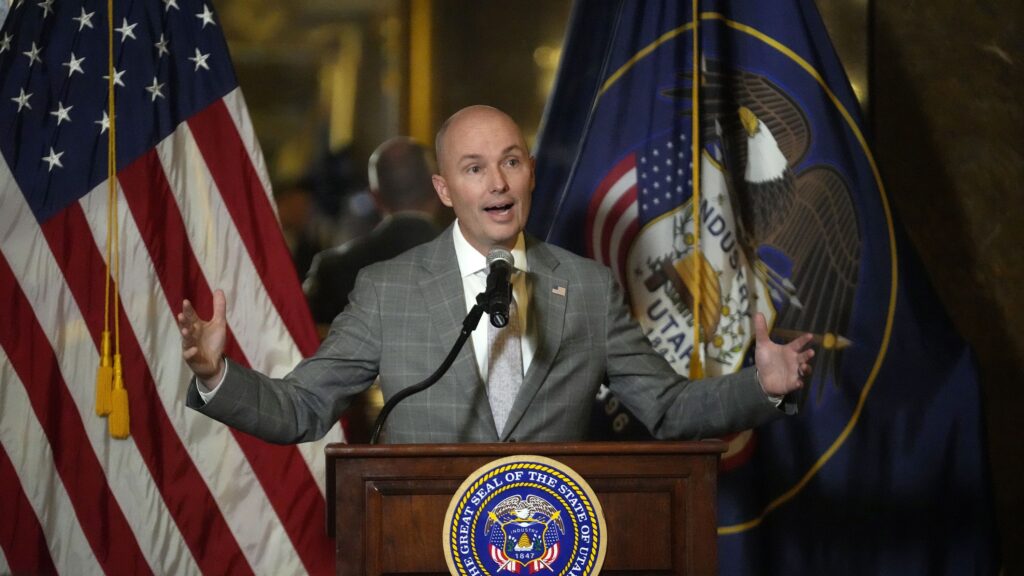SLOAN | Oil and war


It has been rather refreshing to witness the nearly universal condemnation of Vladimir Putin’s invasion of Ukraine, a rare show of bipartisan unity that restores a shimmer of faith in the old adage that politics ought to stop at the water’s edge.
Well, the corollary to that is that political differences may be delayed at the border, but not stopped. Fissures were bound to develop, and the biggest one so far seems to be with regards, unsurprisingly, to energy policy. The Russian invasion, and the retaliatory sanctions imposed on Russia by the west, invoked a level of clarity and immediacy surrounding the notion of American energy independence, understood by most to mean – at least in the foreseeable term – a state in which the American economy could be driven by domestic (or friendly) sources of oil and gas, without the need to be tied in any substantial way to sources from countries that might, say, shell schools, apartment buildings and nuclear plants in neighboring countries.
Rep. Raul Grijalva (D-AZ), chairman of the House committee on natural resources, penned an op-ed in Britain’s The Guardian earlier this week in which he rejected that premise, trying rather weakly to assert that the plea to increase domestic energy supply was nothing more than an industry ploy, and that the answer – to simply stop using fossil fuels – was blowing in the wind.
Eye-rolling stuff, to be sure, and unconvincing, even to fellow Democrats, like the far more sensible Senators Joe Manchin and Jon Tester. But it’s indicative of the sort of madcap pressure that President Biden will face from some corners as he tries to navigate the crisis.
The issue of energy policy as it relates to the situation in Eastern Europe is already a complicated one. President Biden was correct, if a little tardy, in imposing a ban on Russian oil imports. But a little perspective is in order. Russian oil only accounts for about 3% of U.S. imports, and around 1% of U.S. oil consumption; it amounts to about 5% of Russian oil exports. Those numbers, while not insignificant, are fairly easily replaceable, by new sources for the U.S. and new markets for Russia.
So the most pertinent question for the U.S. is from where to make up that difference? More importantly, in terms of exerting economic pressure on Russia, is how to supply other markets with non-Russian energy? Given the available reserves in the U.S. and Canada, it is self-evident that supply can, and should, be made up domestically. And yet, bowing to the type of pressure exerted by the likes of Rep. Grijalva and his influencers, President Biden is opting instead to go begging OPEC nations, like Saudi Arabia, the UAE, and even Iran and Venezuela, to open their taps.
Venezuela offers an interesting, if maddening, example of the insanity that dominates our energy policy, on the foreign side. In 2019, the Trump administration leveled sanctions on the Maduro government in Caracas, due to the increasing brutality, and potential external threat, of his regime. This cut off imports of Venezuelan heavy crude which were replaced by Russian heavy crude. Bringing us back to the place we now find ourselves, flipping a coin between two devils.
The question stands, of course, of why the U.S. is importing oil in the first place? We are, after all, the top producer of oil and gas in the world, and among the top exporters. The answer is just as maddening as the foreign politics that come into play and has to do with the artificial barriers to energy independence we saddle ourselves with, such as the Jones Act, pipeline restrictions, “fracking” and leasing bans, refining capability, regulatory constrictions on capital, and other obstacles.
It is undeniable that short-sighted policies at both the federal and state level have constricted domestic production. Critics of oil and gas production, such as Mr. Grijalva, like to point out that Biden’s ban on federal oil-and-gas leasing only (!) impacts about 32% of U.S. production, and that there are thousands of approved oil-and-gas leases left untapped. But a lease does no one any good if you can’t get approval for the road to access it, or for the pipeline to ship out the product, or any of the dozens of other permits required to actually produce anything from those leases.
Colorado has for years now used the regulatory vice to squeeze the life out of our domestic energy industry. The federal government has done the same over the past year, and we are witnessing the consequences. Alberta Premier Jason Kenney said it eloquently, speaking of the Keystone pipeline: “If President Biden had not vetoed that project, it would be done later this year – 840,000 barrels of democratic energy that could have displaced the 600,000 plus barrels of Russian-conflict oil that’s filled with the blood of Ukrainians.”
Replacing Russian (or Venezuelan) oil with domestic supplies will take time, but far less than any chimerical transition to fossil-free alternatives, especially given our irrational aversion to nuclear power. In the meantime, we offer ourselves only the alternative of which tyrant we elect to appease today.
Kelly Sloan is a political and public affairs consultant and a recovering journalist based in Denver.












